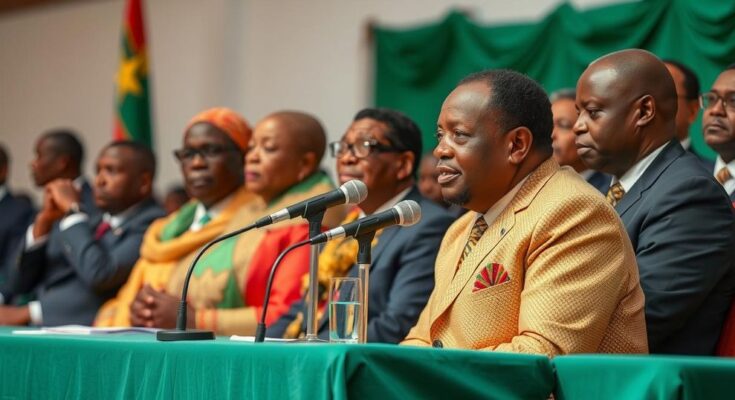Mozambique will inaugurate its new parliament amid allegations of electoral fraud and widespread protests led by opposition leader Venancio Mondlane. Opposition parties plan to boycott the session, citing a lack of respect for voters’ will. Mondlane’s claims of winning the presidential election have been met with violent clashes, resulting in numerous fatalities and significant economic disruption.
Mozambique is poised to inaugurate its newly elected parliament on Monday, following an election marred by allegations of rigging and subsequent violent protests. Opposition leader Venancio Mondlane asserts he won the presidential election and claims the results were manipulated to favor Daniel Chapo of the ruling Frelimo party, which has dominated the political landscape for half a century. In a show of dissent, opposing parties, Renamo and the Democratic Movement of Mozambique (MDM), have announced their boycott of the parliament swearing-in ceremony.
Mondlane has mobilized his followers for a series of peaceful protests from Monday to Wednesday, coinciding with Chapo’s planned presidency installation. He has called for a national strike to disrupt normal activities as a means of expressing opposition to what he describes as a betrayal of the electorate’s will. The tension has already resulted in significant violence, with reports indicating dozens of fatalities linked to post-election unrest, including clashes with security forces.
In response to the election results, where Frelimo secured 171 seats and the Podemos party claimed 43, Mondlane has returned from exile to challenge the official narrative. He maintains that he garnered 53 percent of the presidential vote, a stark contrast to the official figure of 24 percent. The restrictive political environment and the perception of electoral fraud have resulted in severe repercussions for Mozambique’s economy, affecting trade and industry while fuelling widespread discontent among citizens.
Mozambique’s political climate has long been defined by a lack of trust in electoral processes, particularly given the history of the Frelimo party’s dominance since the end of civil war. The recent presidential election, held in October, has ignited fierce disputes between the government and opposition factions, leading to deadly protests and escalating tensions throughout the nation. The allegations of electoral misconduct and the resulting violence reflect deeper issues of governance and civilian discontent in Mozambique, complicating the social landscape as the country approaches a new parliamentary term.
The upcoming swearing-in of Mozambique’s new parliament is overshadowed by claims of electoral fraud and widespread protests led by opposition factions. The situation underscores a profound discontent among the populace concerning the legitimacy of the election process, leading to significant unrest and calls for peaceful demonstrations. As the economic and social consequences of this political turmoil unfold, the ramifications will likely reverberate throughout Mozambique’s institutions and its citizens for the foreseeable future.
Original Source: www.voanews.com




